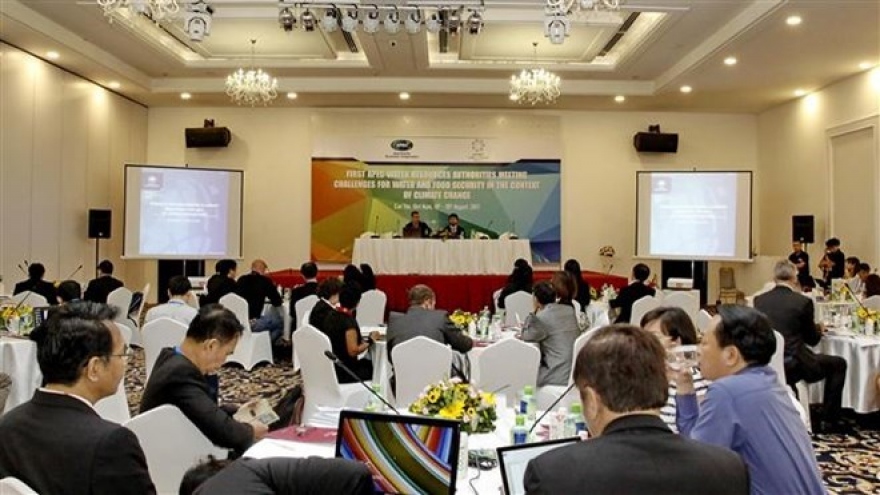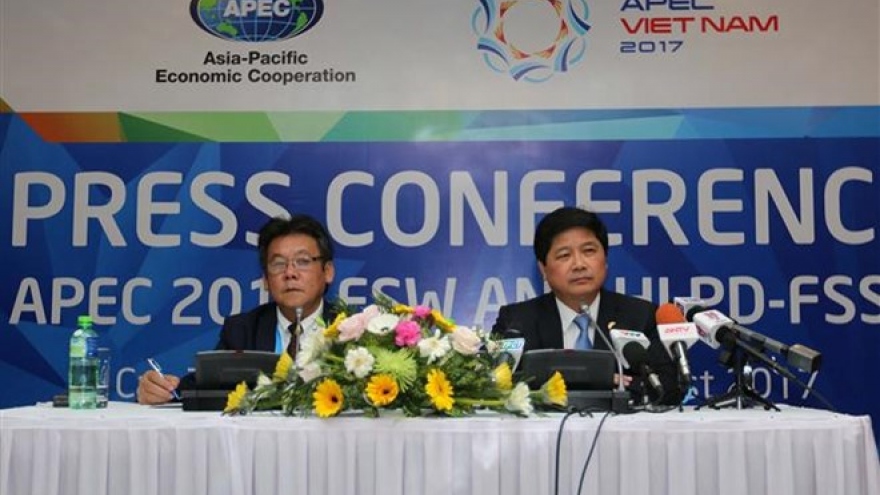Achieving sustainable food security
At the APEC Ministers and CEOs Dialogue on the responsible use of resources to enhance sustainable food production and agri-business, Aruna Rachakonda, CEO of Monsanto subsidiary Dekalb Vietnam talked about the challenges to achieving sustainable food security.
 |
| Aruna Rachakonda, CEO of Monsanto subsidiary Dekalb Vietnam |
Food security has become an increasing concern for many APEC economies, due to challenges related to both the supply and demand for food. On the demand side, with a projected world population of over nine billion by 2050, APEC economies must produce more food than has been produced in the entire history of the world.
Income growth and urbanisation have also resulted in changing food consumption patterns in the Asia-Pacific region. On the supply side, the economies allocate less land area and water surface to agriculture and face the vagaries of a changing climate around the globe.
If we consider the expanding population, climate change, and diminishing water and land resources, today’s agriculture seems woefully inadequate. For both smallholder farmers and big farm owners, agricultural innovations are needed to overcome these challenges.
We need industry-wide and cross-border collaborations to accelerate innovation and deliver integrated solutions based on biology, chemistry, and data science to agricultural producers in both the APEC economies and the rest of the world. Innovations coming down the pipeline will play a significant role in meeting the world’s food security needs.
Monsanto is known as a pioneer in providing hybrid plant breeds, which raise both yield and food quality. Can you provide some insight as to what initiatives and methods you employ?
Monsanto focuses on the five key areas of data science, plant breeding, plant biotechnology, crop protection, and agricultural biologicals.
Powered by data from satellites, interactive maps, and sensors, farmers can access valuable information about weather patterns, plant health, and soil quality by employing data science. This advanced, data-driven software allows farmers to more precisely optimise their methods of planting, growing, and harvesting their crops.
Regarding our innovative plant breeds, they are the next step to what farmers have been doing for thousands of years – cultivating crops with improved plant characteristics. Breeding for more desirable plant traits, like disease resistance or grain quality, helps farmers achieve better or more bountiful crops.
Next, through plant biotechnology, scientists can take a beneficial trait that helps a living thing thrive in nature – like the ability to resist harmful insects – and adapt that trait to a new plant so that it can better survive. Since its introduction more than two decades ago, plant biotechnology has helped farmers reduce CO2 emissions, insecticide expenses, and crop loss, while increasing water efficiency.
At any stage, seeds and plants are at risk from pests, weather, poor soil conditions, weeds, and diseases. We work to create solutions to help protect plant health and minimise environmental impact. Crop protection tools such as herbicides, insecticides, and fungicides – known collectively as pesticides – play an essential role in a farmer’s success each season.
Last but not least, Monsanto’s agricultural biologicals platform includes two core technologies: BioDirect and agricultural microbial products. These products are derived from naturally-occurring materials and processes that can benefit agriculture by protecting beneficial insects from pests, and/or nourish and protect crops from pests, weeds, and diseases.
In Vietnam, Monsanto has introduced four of these five key solutions: seeds, plant biotechnologies, crop protection, and agricultural biologicals. These innovations are improving the corn supply chain, which is essential for livestock production chains, supporting farmers to increase yield, reduce farming costs, and improve their incomes in the face of climate change.
Do you have any expectations for the APEC Ministers and CEOs Dialogue about responsible use of resources to enhance sustainable food production and agri-business?
Monsanto is one of the leading agricultural enterprises in the world, and it represents the US in participating in the APEC Exhibition on New Food Products and Technologies in Agriculture at the APEC 2017 Food Security Week in Can Tho. Monsanto has always believed that APEC is an ideal foundation for economies to exchange and discover solutions to deal with food security and climate change challenges.
To reach the targets of food security and sustainable development, economies should adopt new agricultural technology and policies.
We are extremely glad to see that over the past few years these two factors have been steadily developed and show better progress in all APEC economies. This should be encouraged and recognized.
To ensure sustainable food security, farmers should be a core factor in all strategies and programmes dealing with food security and climate change. If technology cannot be delivered to farmers, it cannot have any influence on the agricultural industry.
This is the reason why we need industry-wide and cross-border collaborations to accelerate the renewal and the application of technology for farmers, in the APEC economies as well as around the world.


